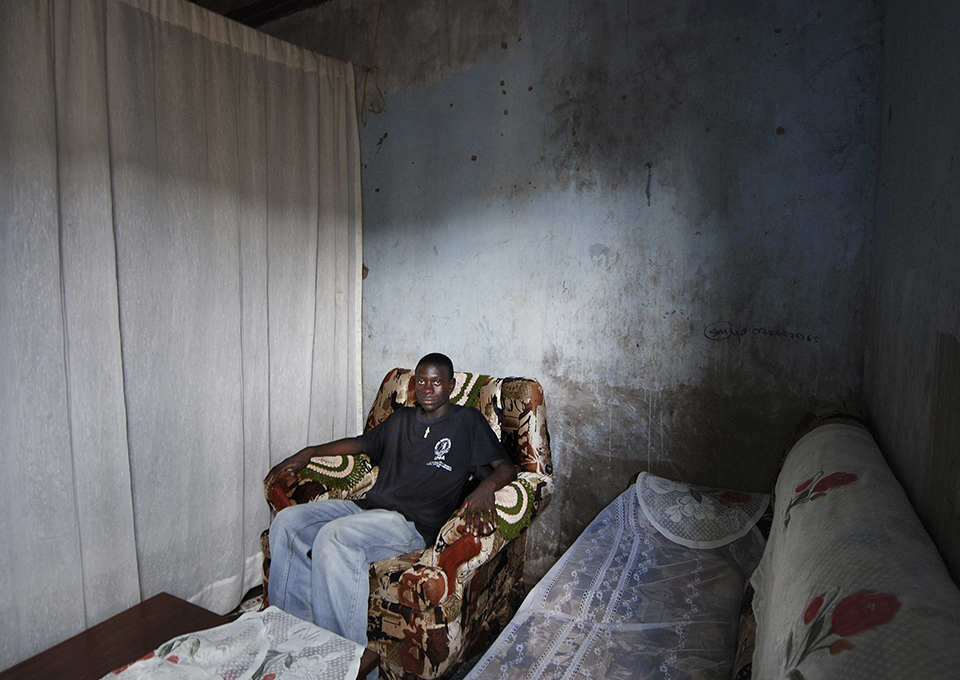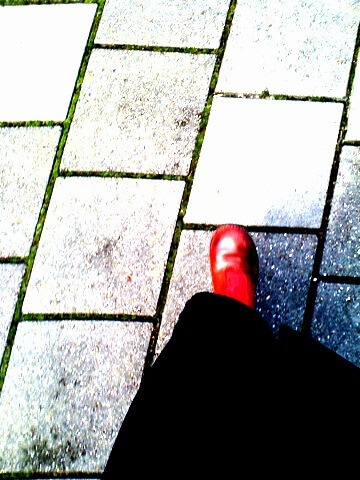I’m white. If you ever had any doubts about that, this is my coming out. Suddenly the facts lie there on the dusty red clay of Entebbe , Uganda.
That afternoon, six of us left on a bike trip, me on a bike with a steering wheel thirty centimetres out of my reach, no brakes and eleven of the twelve gears out of order.
Lake Victoria Uganda
While the others were naturally savvy as to how to avoid clay roads full of red pools, bleating goats and motor bikes laden with beds, I stayed behind, wearily treading my way uphill. At every turn, I forgot that traffic is on the left side here and found myself eye to eye with a wildly accelerating bus. Lake Victoria glistened in the background.
While watching the rest of our team disappear around a corner far in front of me, a small group of children ran towards the red path on which I was desperately trying to avoid crashing into a ditch. All eyes were turned to me, but no one spoke.
The wind was whispering in the banana trees and all of a sudden: they yelled in unison “Bye, mzungu” and rolled over with laughter.
Bye, mzungu
Bye white woman. I looked around me, no doubt about it, they were talking to me. Innumerable black children looked at me expectantly. I raised my hand and waved. ‘Bye’, I said rather sheepishly, but no-one seemed to notice. As if I were the Queen, they all raised their hands and waved back.
If that had been the end of it, I would probably have thought it to be an incident, but from that moment on, wherever I rode or walked, I was greeted by my colour.
Kampala Road
Later on, in Kampala on Kampala Road, I came to the conclusion that being a mzungu has its advantages. I was the only white person, trying to cross the main thoroughfare, between armed soldiers on motorbikes, minibuses without windshields and women carrying tons of bananas on their heads.
The road was swarming with people and vehicles and the left side traffic did not make things any easier for me. When I finally bungled my toe over the boulevard, the traffic stopped abruptly. “A mzungu”, a man in a bus yelled, as if he had spotted his first lion on a safari.
Boda-boda
A woman grabbed my arm and said: ‘come with me mzungu”, and guided me safely across the street. Mzungu means more than just the skin colour. It stands for the white man’s culture. Labelling anything as being mzungu, clarifies everything. Mzungu time for example is far removed from the African concept of time. There is mzungu food. A Mzungu woman like me is seated differently on the boda-boda, the motorbike taxi. African women in their beautiful robes sit astride on the luggage carrier, while I hang on to the driver as if he were my lover… mzungu style.
Nyendo
Today, in the slums of Nyendo, where riots made the headlines last week, the mzungu was not greeted in the usual friendly way by many. Grim faces looked at me. A few boys of around 15 yelled “Fuck you mzungu”. My white colour was like a drop of oil on smouldering coals in this neighbourhood.
There I walked, through the mud in my flip flops, dressed in a clean dress with no tears. When I smiled at them, they looked at a row of teeth that had been forced into a straight line for years, by a very expensive orthodontist. I had no festering wounds, no missing limbs and was clearly well nourished. In short, I was a mzungu.
FOHO
In the end the magic of the mzungo triumphed over the anger. Small children were not intimidated by their grim elders. They had spotted mzungu’s, which meant a welcome change from their dreary existence as water carriers or house slaves.
Suddenly, I felt a small hand in mine. A little girl, of about four years old, looked at me contentedly. Not much later, a little boy of hardly two, took my other hand. When the little girl skipped away happily, a boy of about twelve appeared beside me. He looked up at me shyly. When I held out my hand, he grabbed it and never let go until I returned to FOHO, the centre that strives to help these children and their parents.
If things had been different, these children would have been able to tell their adventure to their parents during dinner that night. As it is, these Aids orphans will be lying beneath a car or a market stall, with their empty stomachs, whispering to each other, “I touched a mzungu today”.
Text: Anneke de Bundel – Images: Nicole Franken
Translation: Adrienne le Brun Hunkar
This story appeared previously in the bundle Zomertijd #2 by the publisher Jaylen and commissioned by Be More.
Uganda praktical
- Public transport is fine.
- Biking is an option as the country is quite flat.
- Ticket for Amsterdam: 685 euro
- Best time to travel: Jun – September,
- December – March
- Be More volunteer jobs


